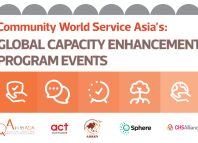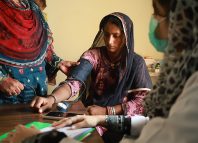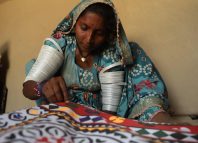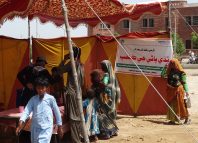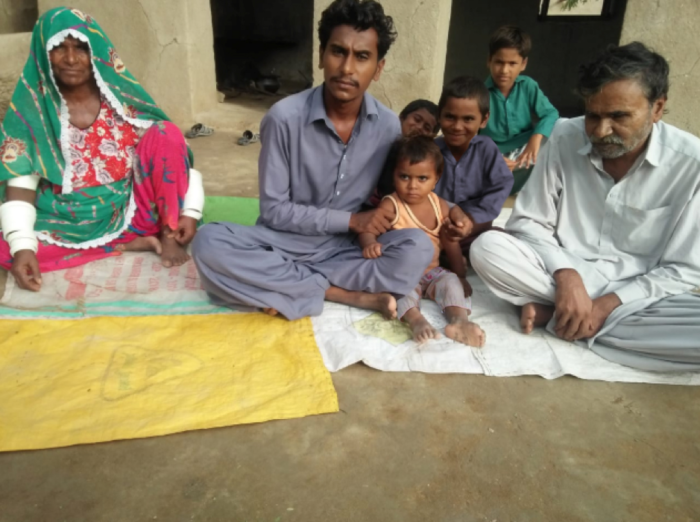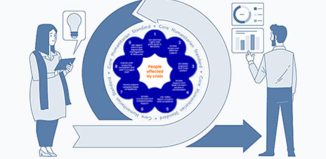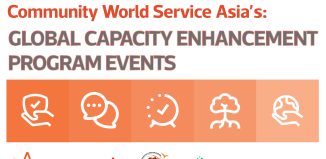Cash assistance enables Dodo and his family to fight food-insecurity and long-term poverty
Dodo Maru Bheel is a 74-year-old father of two children, a son and a daughter, and a resident of Moriya village in UC Sekhro district of Umerkot, Sindh. He and his wife and younger daughter currently live with their son and his family (of six members, a wife and four children). Dodo has a visual impairment but he has never considered that as a disability or something that would hinder his life plans or goals. He is as resilient as can be and everyone in the village admires his determination and strength.
Dodo experienced a fatal road accident a few years ago. Due to an unavailability of an ambulance or timely first aid in the area, Dodo was unable to access appropriate medical facilities which further worsened his injuries from the accident. Since his financial conditions were unfavourable, he could not even afford most of the prescribed treatment at a bigger health centre in the nearest urban city. Dodo suffered a severe head injury which eventually lead him to lose his eye-sight completely.
With his sudden visual impairment, Dodo was unable to find any employment or paid work. He used to work as a daily labourer in the Umerkot city and surrounding areas. The elderly couple, along with their daughter, hence became financially dependent on their son. Their son, a daily wager, worked as a mason and the money he earnt barely met his own family’s basic day-to-day expenses, let alone a whole household of now nine members.
As the COVID-19 pandemic hit Pakistan, the government imposed a country-wide lockdown to restrict the spread of the virus. Many daily wagers lost their jobs during the lockdown; Dodo’s son was among them. The family could barely afford a single meal a day. Dodo and his son were struggling to keep their house running and their families fed. This dire situation prompted Dodo to sell a few of his goats during the days leading up to Eid-ul-Adha in late July 2020. His goats were his only remaining livestock and a supporting income means. Dodo also borrowed some money during the early days of the lockdown from a local landlord to meet their household expenses.
In April 2020, Dodo’s wife had received cash assistance of PKR 12000 (approx. US $ 71) from Ehsaas Kafalat Program as a part of the government’s COVID-19 relief fund. With that amount, Dodo and his wife planned to run a small scale, home-based business but his former creditors pushed him to pay back his loans with that amount so he was unable to use it for anything else.
The lockdown in the country has now eased but COVID-19 has left the country in a severe economic crisis that has pushed many underprivileged communities into poverty. Dodo and his son sold almost all the resources they had to sustain their family’s survival needs and are left with nothing now.
Community World Service Asia and UMCOR have initiated a project to respond to the needs of hazard and COVID-19 affected marginalised communities in rural Sindh. As part of the project, together with the support of village committees, the project selected Dodo as a participant of its cash-assistance. This will ensure that Dodo receives PKR 24000/- in two monthly installments to start his own small scale, home-based business.
Dodo and his family are happy to be selected and are looking forward to efficiently utilising the cash that they will receive next week and returning to a somewhat normal semblance of their life, as they did before the COVID-19 crisis. Dodo also hopes to save some of this money to consult an eye specialist for his eye-sight treatment.

